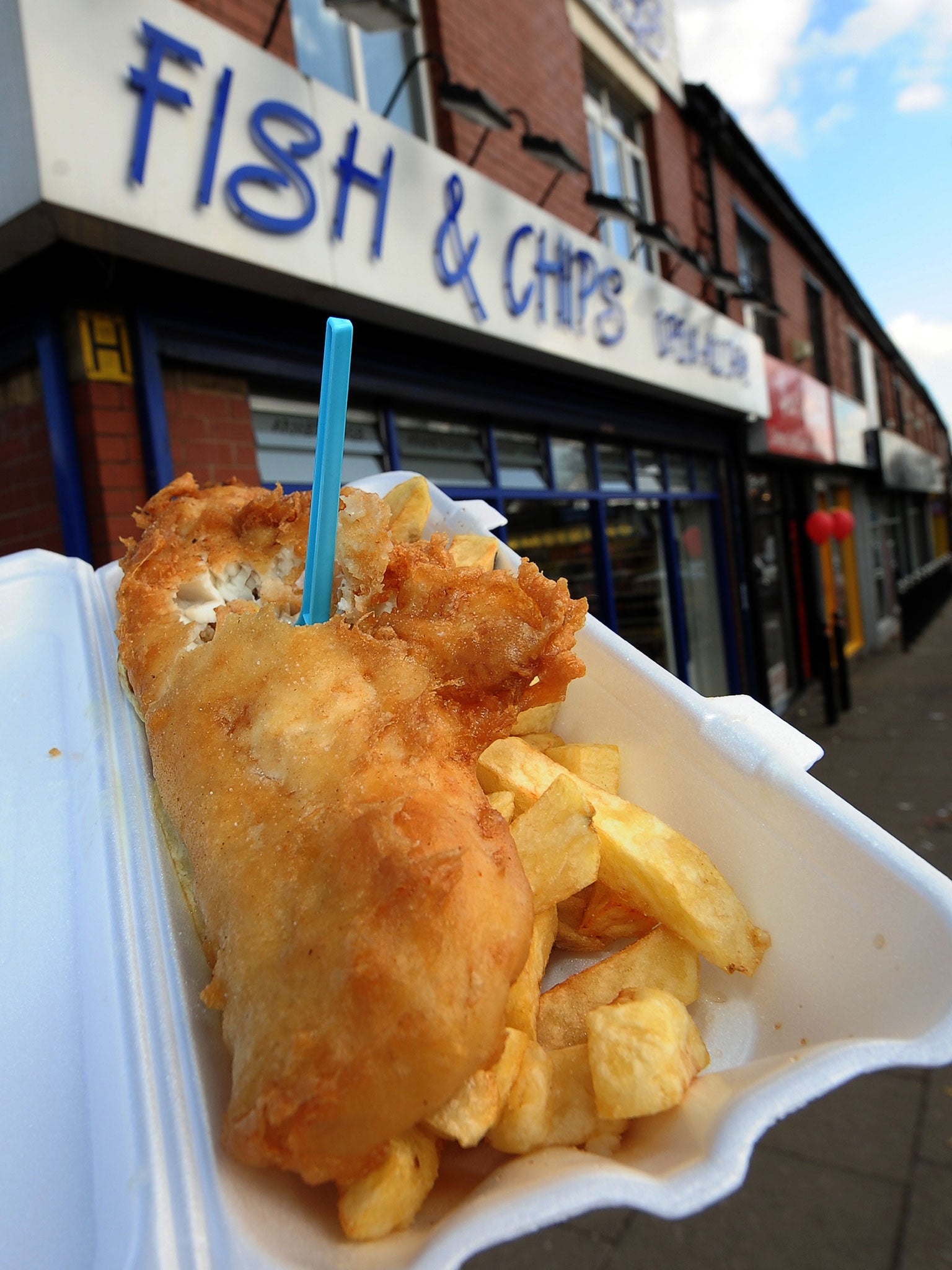Portuguese-Jewish exiles turned chips with fish into our national dish
The quintessential British dish has a somewhat fishy history

Your support helps us to tell the story
From reproductive rights to climate change to Big Tech, The Independent is on the ground when the story is developing. Whether it's investigating the financials of Elon Musk's pro-Trump PAC or producing our latest documentary, 'The A Word', which shines a light on the American women fighting for reproductive rights, we know how important it is to parse out the facts from the messaging.
At such a critical moment in US history, we need reporters on the ground. Your donation allows us to keep sending journalists to speak to both sides of the story.
The Independent is trusted by Americans across the entire political spectrum. And unlike many other quality news outlets, we choose not to lock Americans out of our reporting and analysis with paywalls. We believe quality journalism should be available to everyone, paid for by those who can afford it.
Your support makes all the difference.An attempt to complete a short ethnographical survey of fish and chips might seem a flawed exercise to you. It might even seem mad. But here we are – me and a battered fish and you there with your morning copy of The Independent, hopefully not with chips on it.
Fish and chips, you might have noticed, seem to be in the ascendant at the moment. You may say, "well, for me they have never been anything but", which is fine and true. But they have, up until now, not exactly been en vogue for those posh chefs who inhabit kitchens in the country's more aspirant conurbations. Fish and chips were just too dowdy, too greasy, too determinedly non-smart. No longer.
At his residency at The Hat & Tun in Clerkenwell, Mark Hix, the great panjandrum of British food, has reimagined fish and chips, bread-crumbing pollock and serving it hot-dog style in a bun. While Tim Peirson of The Notting Gill Chippy has dressed his fish and chips Indian style, with a spicy batter and chutney on the side. Naturally, Tom Sellers, who is very much in the avant of the avant-garde, served monkfish cheek and matchstick fries during his three-day collaboration with Krug champagne for its champagne and chips blow out.
What you will notice from that résumé is that the chefs who have taken up the dish are bold-face names. People whose restaurants have waiting lists; places where bills stretch comfortably into three figures for two people. This may seem counterintuitive, given that fish and chips was once the food of "working men" as Henry Mayhew noted in the late 19th century, something seen as so very essential to the moral and nutritional backbone of the nation that is wasn't rationed during the Second World War. Today it seems to occupy a position of almost universal affection, somewhere between Sunday football and Her Majesty the Queen.
This is all the more odd because there is nothing particularly traditional about the dish, unlike, say, roast beef or boiled ham. Battered fish first came to this country with the 16th-century Portuguese Marranos, who, though posing as Christian, were Jewish, and so fried their fish in egg and breadcrumbs on Friday to eat cold on the Sabbath, when the Mosaic laws forbade cooking. The batter preserving the fish and stopping the oil ruining the flavour. It was called fish in "the Jewish manner".
At this point, the chip was a stranger to the fish. In fact, some claim that fried potato was, in the first instance, a usurper of the fish when the rivers froze (though the evidence for this is as murky as two-week-old chip oil). The credit for bringing the two together, for turning them into "the good companions" as Winston Churchill had it, goes either to a Lancashire-based entrepreneur who dispensed them wrapped in newspaper from a wooden hut in Mossley in about 1863 or Joseph Malin, an Ashkenazi Jewish immigrant, who opened up a shop in Bow in 1860.
Whoever was first, it is interesting to note that the English have often been open to the foods of other people from different places. And that one of the most emblematic foods of the nation owes its genesis to Moses, Portugal and likely an upwardly mobile Ashkenazi Jewish man in late Victorian England.
Join our commenting forum
Join thought-provoking conversations, follow other Independent readers and see their replies
Comments